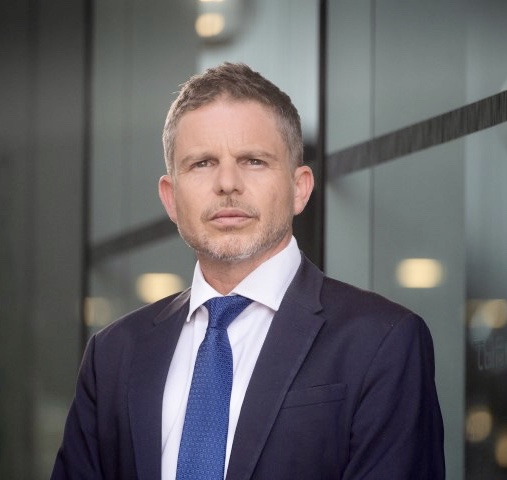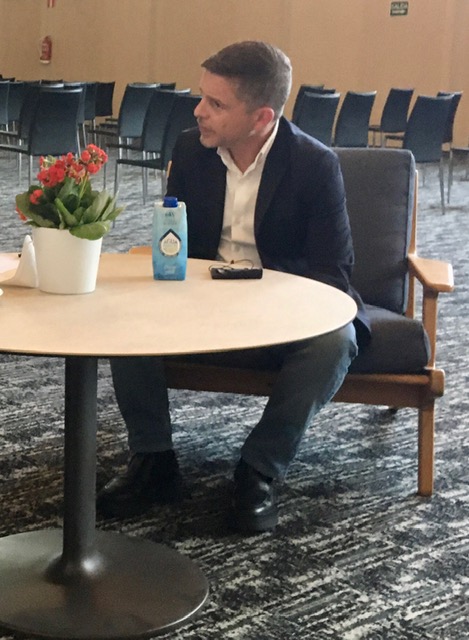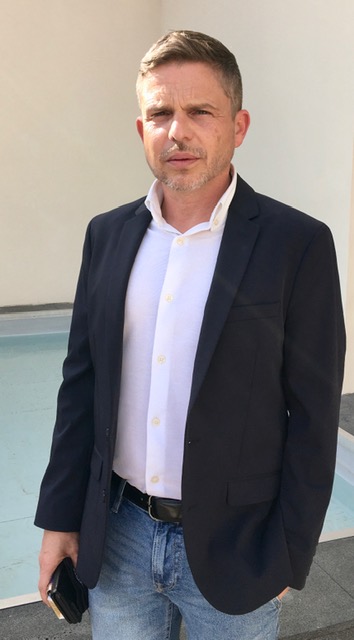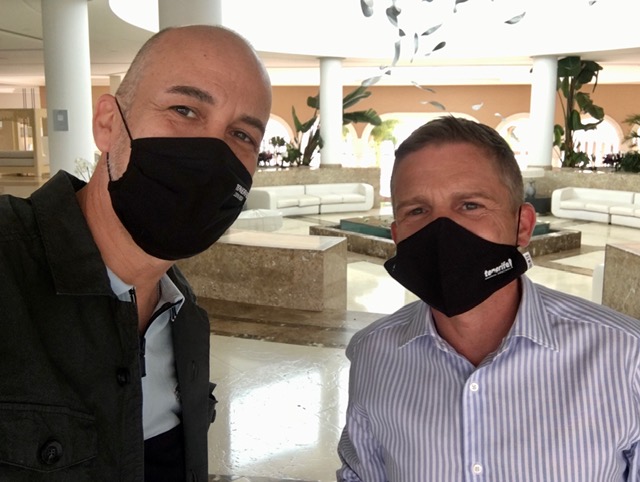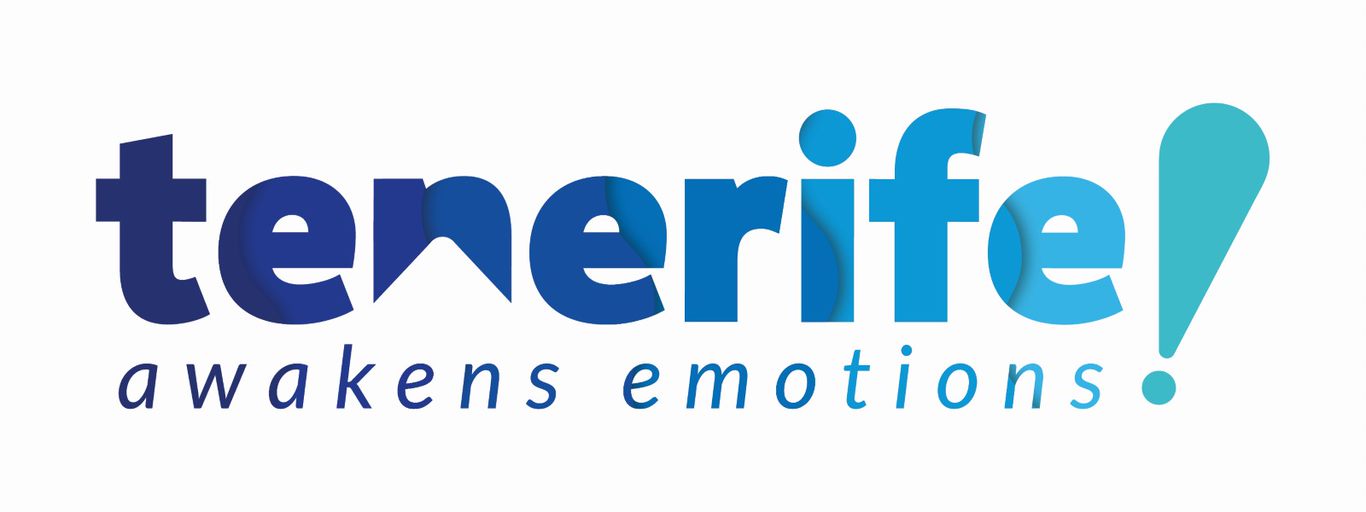By Jeff Peet, Managing Editor from Tenerife.
1.- How long have you been professionally involved in the tourism industry?
I have always worked in the tourism industry. I am 47 years old and I have been doing it for the last 25 years, so I have dedicated most of my life to be involved in the sector, both in hotels and airport handling, but also and mostly with tour operators and agencies, as a contractor. Tourism is something that I like, that I am passionate about and when you feel passion for what you do, everything is much easier and it becomes more bearable.
2.- What is the importance of the Aviation-Event 2021 Tenerife conference that you just hosted less than a week ago?
I believe that it positions Tenerife. The conference shows us as a place that, although it is already a tourism powerhouse because it is a well-known destination in the world and with a fairly large volume of business, is taking part in the decisions that are made or, at least, in the debate prior to the decision-making process. For us, it is crucial to be there, as it is also important to have hosted all these people and that they know us as a destination. Having decision-makers here with helps us to influence, in the best sense of the word and in the best possible way. On the other hand, it is relevant to publicize our economic and tax regime as we hope that it can attract certain airlines to maybe locate a structure, a division or a call center here. We have the advantage to offer a 4 percent tax charge, a benefit that we have raised, in case that might be an attractive option for some companies.
3.- How having held this event is part of the current tourism strategy that you are developing and which other areas would you like to influence?
We are a territory that is seeking diversification. For example, we have an audiovisual industry so many Hollywood and European film productions are made here, with a significant tax advantage via exemptions. There is also innovation, renewable energies and, certainly, there are companies that have chosen Tenerife to establish themselves. There are technological ones like Atos. In fact, Vueling, the airline, has decided to bring a certain operational structure here. However, we are not a tax haven. The tax exemption that we can provide is not designed for banking and other related economic activities. What I am referring are conditions that allow for ultra-peripheral regions, such as the Canary Islands, that help us compensate a little and allow the creation of employment and wealth.
Therefore, for us to have been able to promote all this in the context of the Aviation-Event 2021 Tenerife conference, it is very important because not everyone knows it. Incidentally, I think we can make use of and demonstrate our organizational capacity, which gives prestige and reputation because over the years, we have been great organizers of great events. It is always good and more so after a pandemic, to get back on the map and remember that we are still here, that we are capable of doing many things. That is very useful for us.
4.- What has been the impact of the pandemic in Tenerife for tourism and do you think there are already signs of recovery?
The pandemic has been absolutely traumatic for us because, in the end, we are not even a seasonal destination, but we are open all year round. Here we are not used to seeing hotels closed or to experience a total halt of activity, like other destinations that stop in winter. Quite the contrary, winter is our peak season. So it has been a real trauma and it has meant an unprecedented crisis, not only because it has affected us as a destination, but also because it has been a health emergency that stopped tourism all together. Tenerife is a place that has the experience of having hosted millions of Europeans for decades and, because of that, it has a level of professionalism, a level of excellence and a level of resilience that, in some way, have allowed us to endure as much as possible this crisis. But there is already light at the end of the tunnel. I believe that we can already see and speak of numbers that invite optimism, although our main client, the British market, is still reluctant to open up to tourist mobility. However, in some other markets, the recovery in Tenerife is beginning to be palpable .
5.- If that conference was in some way a starting point after this great impact that the pandemic has caused, what lies ahead in terms of projects for Tenerife Tourism?
We are working on a total and absolutely new repositioning as a destination. We have presented a new marketing plan and a new strategy. We are the most diverse destination in the Canary Islands and, certainly, also in Spain because here you can find art, architecture, culture, gastronomy, viticulture, an impressive nature with one of the most visited national parks on the planet and the world’s third largest sanctuary for whales and dolphins. In addition, 48 percent of our territory is protected, so nature is something that captivates those who visit Tenerife and if you add to that one of the best climates on the Earth, there are many qualities that allow us to satisfy the needs of new travelers, of those digital natives who are joining the tourism market. I say all this because digitization and sustainability focused on improving our competitiveness, is what surrounds our new strategy to reposition ourselves and what defines the projects we are developing today.
6.- What does this new strategy appeal to?
We are appealing to the normality in people, to the emotional aspect in each of us. We are not looking for top models or hard-to-reach references. Our call is to normal people, because today I believe that a task we have is to accept our own normality and how we really are. Our intent is to inspire new travelers through emotions and our new motto “Tenerife awakens emotions” is based on that. It is a more emotional approach, a more humane type of communication that caters to the great diversity of people that exist. People value and want to regain their normality, a healthy and slower life more than ever before.
7.- There is a new logo and you were just explaining your new strategy. What other elements do you have in mind?
Improving all the Sustainable Development Goals (SDGs) has already become essential because, what is a quality tourist? A quality tourist is not the one with the most economic power who can pay for everything, but rather the responsible traveler looking for responsible destinations. Our main interest is to continue advancing in the SDGs that are not only environmental. There is also a need to achieve equality, value our heritage, our identity, our culture and improve our security, etc., because sustainability is much more than the environment. All this is a clear line, but so is digitization, not only of the processes and services that may be available, but also artificial intelligence, big data or ways to be more efficient, effective and predictive. If we continue on this path, we will be far better prepared for a world that fluctuates more and more, and a tourism industry that experiences more and more changes. Our challenge is to move from analog to digital, leading the way and that is not easy. As a tourist destination, we want and we are committed to leading the digitization of tourism. That is our challenge and where our efforts are being focused.
8.- What importance do you attribute to aviation?
Tenerife is an island-territory so aviation is key for us. It is the best way to get to the archipelago. We can be reached by boat, but the speed of aviation makes it possible for Tenerife to be a destination for another type of traveler, with other needs. Connectivity is our day-to-day, so aviation is key to what we want to achieve as a destination and what we want to offer to those who visit us. This forces us to pay attention to the sustainability of such means of transport in order to generate the lowest possible carbon footprint and compensate it here at the destination, so that no one worries about a trip from Europe to Tenerife or from anywhere else. In other words, our work goes beyond that of private companies, which not only refers to the airline industry, but also to the hospitality sector, for example, because we are seeking to compensate through our own programme, in that sense.
9.- What do you think is the recipe for Tenerife to have been able to remain in time, as a destination in which travelers do not lose interest?
The first is the success of local entrepreneurs in terms of knowing how to evolve. Then there is a managing body in which I have only been for the last two years but that as an organization it has been around for much longer. I am talking about Turismo de Tenerife (Tenerife Tourism), a highly valued entity here and in the rest of Spain. It is the first tourism board that existed in our country and because of that it has always been a driver of innovation and evolution, both linked to the good work of the sector locally. I believe that there lies our recipe or our secret and that is how Tenerife has remained a world-renowned destination.
10. Thinking of Latin America, what lessons do you think your experience here in Tenerife that have proven to be successful could be shared with that region of the world as a path to success?
There are several things. Training is key, in terms of having professionals at the level of what is received and what is expected by those who visit us. In the end, if you want to receive a certain level of traveler, you have to give and offer at that very same level. That is complicated, because with competing destinations such as Turkey and Egypt for example, where they are not under the regulations of the European Union, also with lower wages and softer regulations than ours… What I want to tell you is that in price, at times, it is impossible to compete so the only possibility we have is to make a difference in quality, in originality, in professionalism and in novelty. You achieve that when more than 60 percent of the people who visit, come back as data becomes proof that some of what you do is being done well.

